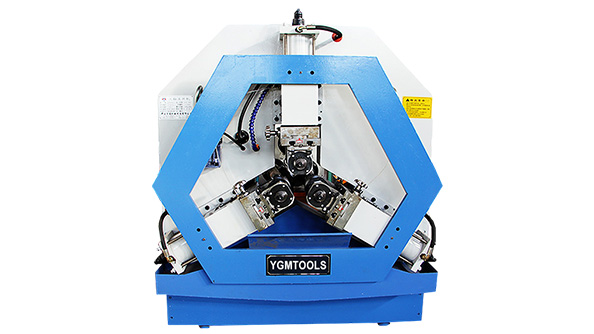
-
 Afrikaans
Afrikaans -
 Albanian
Albanian -
 Amharic
Amharic -
 Arabic
Arabic -
 Armenian
Armenian -
 Azerbaijani
Azerbaijani -
 Basque
Basque -
 Belarusian
Belarusian -
 Bengali
Bengali -
 Bosnian
Bosnian -
 Bulgarian
Bulgarian -
 Catalan
Catalan -
 Cebuano
Cebuano -
 Corsican
Corsican -
 Croatian
Croatian -
 Czech
Czech -
 Danish
Danish -
 Dutch
Dutch -
 English
English -
 Esperanto
Esperanto -
 Estonian
Estonian -
 Finnish
Finnish -
 French
French -
 Frisian
Frisian -
 Galician
Galician -
 Georgian
Georgian -
 German
German -
 Greek
Greek -
 Gujarati
Gujarati -
 Haitian Creole
Haitian Creole -
 hausa
hausa -
 hawaiian
hawaiian -
 Hebrew
Hebrew -
 Hindi
Hindi -
 Miao
Miao -
 Hungarian
Hungarian -
 Icelandic
Icelandic -
 igbo
igbo -
 Indonesian
Indonesian -
 irish
irish -
 Italian
Italian -
 Japanese
Japanese -
 Javanese
Javanese -
 Kannada
Kannada -
 kazakh
kazakh -
 Khmer
Khmer -
 Rwandese
Rwandese -
 Korean
Korean -
 Kurdish
Kurdish -
 Kyrgyz
Kyrgyz -
 Lao
Lao -
 Latin
Latin -
 Latvian
Latvian -
 Lithuanian
Lithuanian -
 Luxembourgish
Luxembourgish -
 Macedonian
Macedonian -
 Malgashi
Malgashi -
 Malay
Malay -
 Malayalam
Malayalam -
 Maltese
Maltese -
 Maori
Maori -
 Marathi
Marathi -
 Mongolian
Mongolian -
 Myanmar
Myanmar -
 Nepali
Nepali -
 Norwegian
Norwegian -
 Norwegian
Norwegian -
 Occitan
Occitan -
 Pashto
Pashto -
 Persian
Persian -
 Polish
Polish -
 Portuguese
Portuguese -
 Punjabi
Punjabi -
 Romanian
Romanian -
 Russian
Russian -
 Samoan
Samoan -
 Scottish Gaelic
Scottish Gaelic -
 Serbian
Serbian -
 Sesotho
Sesotho -
 Shona
Shona -
 Sindhi
Sindhi -
 Sinhala
Sinhala -
 Slovak
Slovak -
 Slovenian
Slovenian -
 Somali
Somali -
 Spanish
Spanish -
 Sundanese
Sundanese -
 Swahili
Swahili -
 Swedish
Swedish -
 Tagalog
Tagalog -
 Tajik
Tajik -
 Tamil
Tamil -
 Tatar
Tatar -
 Telugu
Telugu -
 Thai
Thai -
 Turkish
Turkish -
 Turkmen
Turkmen -
 Ukrainian
Ukrainian -
 Urdu
Urdu -
 Uighur
Uighur -
 Uzbek
Uzbek -
 Vietnamese
Vietnamese -
 Welsh
Welsh -
 Bantu
Bantu -
 Yiddish
Yiddish -
 Yoruba
Yoruba -
 Zulu
Zulu
Hydraulic Thread Rolling Machine Pricing and Specifications for Industrial Applications
Exploring the Benefits of Hydraulic Thread Rolling Machines A Comprehensive Overview
In the modern manufacturing landscape, the demand for precision-engineered components continues to grow. Among the various methods of metal forming, thread rolling has emerged as a preferred technique for producing high-strength threads in a variety of materials. Specifically, hydraulic thread rolling machines have gained prominence due to their efficiency, accuracy, and versatility. This article delves into the advantages of hydraulic thread rolling machines and why they are a worthy investment for manufacturers.
What is Hydraulic Thread Rolling?
Hydraulic thread rolling is a cold-forming process that involves deforming material to create threads. Unlike traditional cutting methods, which remove material, thread rolling displaces metal to form the desired shape. Hydraulic thread rolling machines utilize hydraulic pressure to apply force to the workpiece and the rolling dies, creating threads with minimal waste. This process is particularly effective for cylindrical components, such as bolts, screws, and other fasteners.
Advantages of Hydraulic Thread Rolling Machines
1. Enhanced Strength and Durability One of the primary benefits of hydraulic thread rolling is the improvement in the mechanical properties of the threads produced. The cold-forming process increases the density of the metal and refines its grain structure. As a result, the threads exhibit higher tensile strength and resistance to fatigue, making them ideal for applications in demanding environments.
2. Cost Efficiency Hydraulic thread rolling machines offer significant cost savings compared to traditional machining methods. Since the process does not involve cutting away material, manufacturers benefit from reduced material waste. Additionally, the high production rates achieved through hydraulic rolling can lower labor costs and increase overall productivity.
hydraulic thread rolling machine quotes

3. Precision and Consistency The hydraulic system in these machines allows for precise control over the pressure and speed of the rolling operation. This level of control ensures that threads are formed consistently, adhering to tight tolerances. The result is high-quality components that meet rigorous industry standards, reducing the need for secondary operations or rework.
4. Versatility Hydraulic thread rolling machines can accommodate a wide range of materials, from soft metals like aluminum to harder alloys such as stainless steel. Moreover, they can produce various thread sizes and profiles, making them suitable for multiple applications across different industries.
5. Reduced Environmental Impact As sustainability becomes an increasingly important focus for manufacturers, hydraulic thread rolling machines contribute to environmental stewardship. The cold-forming nature of the process eliminates the need for cutting fluids, and the reduced material waste aligns with green manufacturing practices.
6. Ease of Operation and Maintenance Modern hydraulic thread rolling machines are designed with user-friendly interfaces, making them easier to operate even for less experienced personnel. The robust construction of these machines typically ensures minimal downtime and maintenance requirements, leading to improved operational efficiency.
Market Demand and Future Prospects
The market for hydraulic thread rolling machines is on an upward trajectory, driven by the growing demand for high-precision components in sectors such as automotive, aerospace, and manufacturing. As industries continue to focus on quality and efficiency, the adoption of advanced technologies, including hydraulic thread rolling, will likely increase.
In conclusion, hydraulic thread rolling machines stand out as a remarkable solution for manufacturers seeking to enhance the quality, efficiency, and sustainability of their threading processes. With numerous advantages, including improved strength, cost efficiency, and versatility, these machines represent a significant advancement in thread production technology. As the need for precision-engineered components continues to rise, hydraulic thread rolling machines will play a crucial role in meeting the challenges of the future. Manufacturers considering an investment in this technology are likely to reap long-term benefits that enhance their competitive edge in the industrial market.
